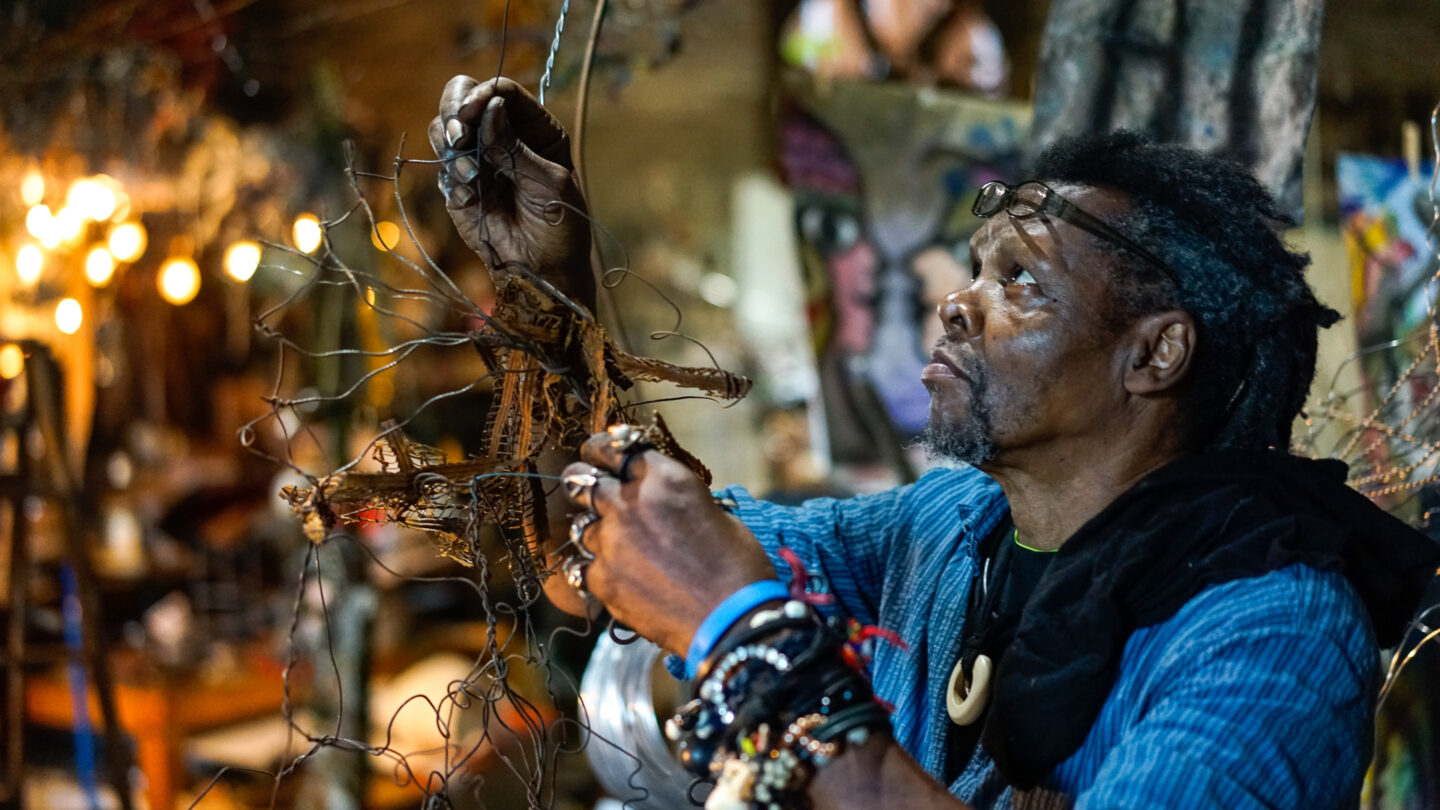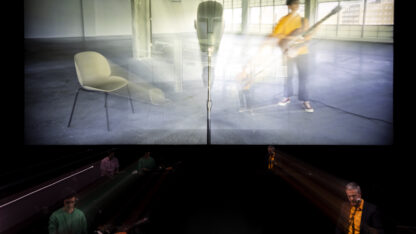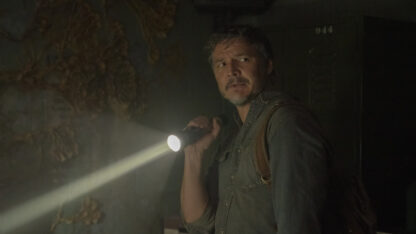Film 'Thumbs Up for Mother Universe' honors the life of acclaimed artist Lonnie Holley

”My art is for the mind, and not the wall.” These words were spoken by the renowned visual artist and musician Lonnie Holley whose life is explored in a new documentary currently streaming through Friday. The film, “Thumbs Up for Mother Universe,” was 22 years in the making and shares the story of Lonnie Holley’s survival, endurance and hardships as a self-taught artist. The film also provides an intimate look at how he creates works of art from discarded materials. Producer and director George King joined “City Lights” host Lois Reitzes via Zoom along with one of the featured guests in the film, musician and scholar Mausiki Scales.
Interview highlights:
“Garbage is a part of my life,” as Holley once said:
“There is a well-respected grio historian from Mali who states that all African art speaks; that African art speaks and it’s an emanation of the artist that creates it. And I think about Lonnie Holley’s pieces in that regard as them having his particular ashe, and very much in the African tradition and the diaspora, the notion of making something out of nothing. A grandmother is able to make a pot of soup and you didn’t see any ingredients in the cupboard; or the use of found objects and finding value in them,” Scales said. “In several of my trips into West Africa, very little gets thrown away, and so I look at Lonnie’s work as being in that continuum within the African diaspora.”
Scales continued, “The use of hangers, the use of wires, the use of sandstone, the plastic arts or the arts that he’s relying on, he uses them to tell a story, and it’s a story that many of us may not have seen had he not pulled all of these pieces together to tell his particular narrative, to tell his story… I look at it in the same spirit as jazz music or the blues, that innovation in a space where a group of people may have very little available to them, but what they present in turn ends up becoming very deep-going and spiritual.”
On Holley’s patchwork yet meticulous process of collecting and creating:
“It’s actually fascinating to watch because after a while you start to see the methodology at work,” said King. “He collects all these things because they grab his interest for one reason or another, maybe a texture or a color or some aspects to the materials that he’s picking up, and then he kind of lives in this environment surrounded by this stuff. So when he starts making something, he’s clearly got an idea in his mind and he will put something together, some arrangement of these artifacts, these objects… he’s looking for something that’s going to fit into what he’s already created… He grabs something and he weaves it into the work in some way, or not, or decides that it’s the wrong thing.”
“He really venerates these materials. He’s very interested in the materials themselves, and he says and he talks about this in the film that Black history wasn’t recorded and Black objects weren’t collected in the same way, of course, that white society collects things that are in museums and things like this. So he says that actually it’s the trash heaps, it’s the garbage dumps. That’s where our history is, and he mines it and then puts together these works.”
An equally immediate and intuitive approach to music-making:
“If you’re around Lonnie, you notice very quickly that he actually vocalizes quite a lot — singing, humming, whistling while working or while he’s wandering around looking for things, and it’s very interesting,” said King. “When he performs, basically he’s doing what he’s doing all the time anyway, except it’s a little more focused in the sense that he thinks about what he’s going to perform rather than just letting whatever feeling flow that is flowing through him at that moment in time. So he and his manager, Matt Arnett, usually hunker down and discuss what he’s going to play, and if other musicians are involved. But of course, what he’s going to play can change totally when he actually lays his fingers on the keyboard or opens his mouth.”
“It is always extraordinary. He never plays the same song twice,” King went on. “Someone once requested — I believe this was actually the mayor of Porto in Portugal — said he was a really big fan of Lonnie’s first album I think it was, and said… he was looking forward to hearing him play this particular cut. And Lonnie said, ‘But I already did that.’ But that’s kind of how he thinks of it. His work is totally original, so if you go see a concert, if you go hear Lonnie play, you’ll be getting something that no one else ever has heard in the past and no one ever will in the future.”
“Thumbs up for Mother Universe: Stories from the Life of Lonnie Holley” is available to stream through Feb. 19 at watch.showandtell.film/watch/thumbs-up.








